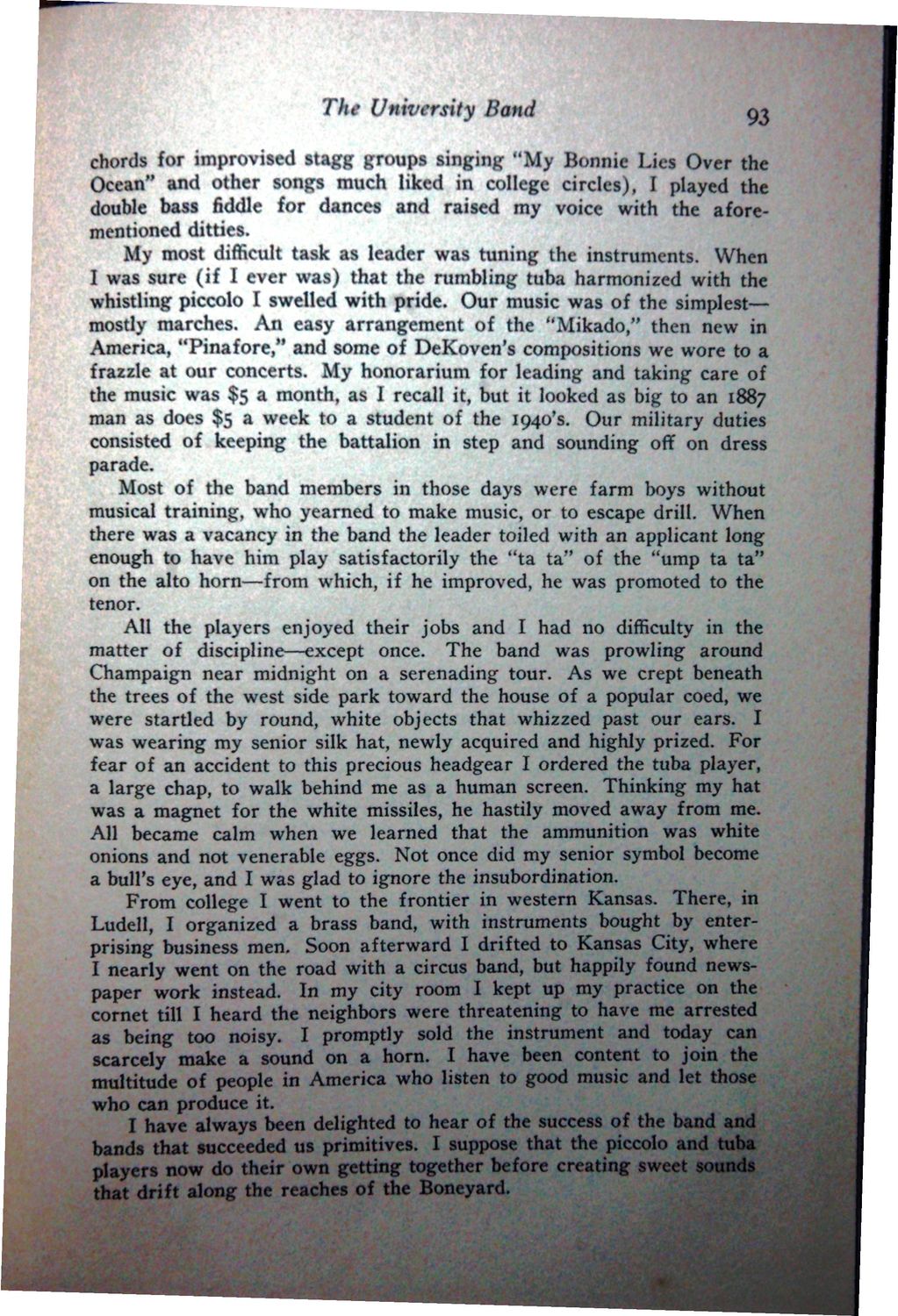| |
| |
Caption: Book - Banks of the Boneyard (Charles Kiler)
This is a reduced-resolution page image for fast online browsing.

EXTRACTED TEXT FROM PAGE:
The University Band 93 chords for improvised stagg groups tinging "My Bonnie Lies Over the Ocean" and other songs much liked in college circles), I played the double bass fiddle for dances and raised my voice with the aforementioned ditties. My most difficult task as leader was tuning the instruments. When I was sure (if I ever was) that the rumbling tuba harmonized with the whistling piccolo I swelled with pride. Our music was of the simplest mostly marches. An easy arrangement of the "Mikado," then new in 1 America, "Pinafore/ and some of DeKovcn's compositions we wore to a frazzle at our concerts. My honorarium for leading and taking care of the music was $5 a month, as I recall it, but it looked as big to an 1887 man as does $5 a week to a student of the i94o's. Our military duties consisted of keeping the battalion in step and sounding off on dress parade. Most of the band members in those days were farm boys without musical training, who yearned to make music, or to escape drill. When there was a vacancy in the band the leader toiled with an applicant long enough to have him play satisfactorily the "ta ta" of the "ump ta ta" on the alto horn—from which, if he improved, he was promoted to the tenor. All the players enjoyed their jobs and I had no difficulty in the matter of discipline—except once. The band was prowling around Champaign near midnight on a serenading tour. As we crept beneath the trees of the west side park toward the house of a popular coed, we were startled by round, white objects that whizzed past our ears. I was wearing my senior silk hat, newly acquired and highly prized. For fear of an accident to this precious headgear I ordered the tuba player, a large chap, to walk behind me as a human screen. Thinking my hat was a magnet for the white missiles, he hastily moved away from me. All became calm when we learned that the ammunition was white onions and not venerable eggs. Not once did my senior symbol become a bull's eye, and I was glad to ignore the insubordination. From college I went to the frontier in western Kansas. There, in Ludell, I organized a brass band, with instruments bought by enterprising business men. Soon afterward I drifted to Kansas City, where band work instead. In my city room ghbors were threatening to have me arrested romptly sold the instrument and today can too > n scarcely make a sound on a horn. I have been content to join the multitude of people in America who listen to good music and let those who can produce it. I have always been delighted to hear of the success of the band and bands that succeeded us primitives. I suppose that the piccolo and tuba players now do their own getting together before creating sweet sounds that drift along the reaches of the Boneyard.
| |